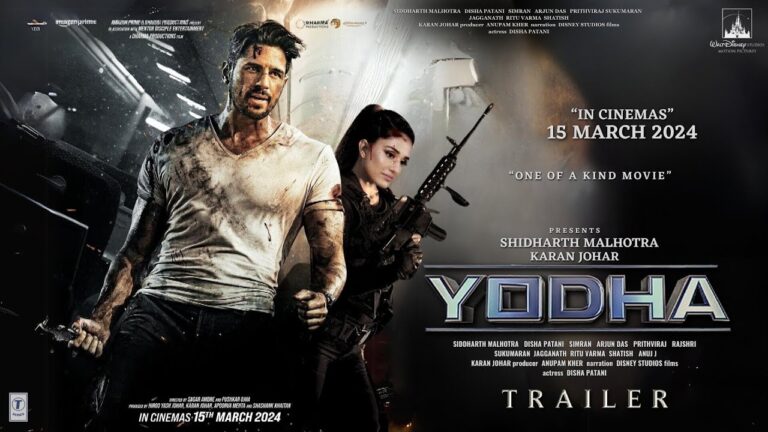The Kerala Story Movie Review: Released in 2023, “The Kerala Story” sparked heated debates and mixed reviews. The film follows Fatima Ba (Adah Sharma), a young woman who gets radicalized and lured into joining a terrorist organization. While aiming to raise awareness about religious extremism, the film’s execution has been met with criticism.
A Story Steeped in Controversy: Walking a Tightrope
The film’s central theme – religious extremism and its lure for young minds – is undoubtedly relevant. However, its approach is controversial. The narrative primarily focuses on portraying Islam in a negative light, showcasing Fatima’s radicalization at the hands of Muslim extremists. This one-sided portrayal has been criticized for Islamophobia and failing to acknowledge the diversity of the religion.
Adah Sharma Delivers: A Capable Performance
Despite the film’s issues, Adah Sharma delivers a commendable performance. She portrays Fatima’s transformation from a college student with dreams to a disillusioned extremist with conviction. Sharma captures the character’s vulnerability and desperation, making her journey somewhat relatable despite the narrative’s shortcomings.
Lost in Stereotypes: Flat Characters and Oversimplification
One of the film’s biggest weaknesses lies in its portrayal of characters. Apart from Fatima, most characters are one-dimensional stereotypes. The Muslim extremists are depicted as villainous and manipulative, lacking any depth or nuance. This reinforces negative stereotypes and hinders the film’s message.
Sensationalized Narrative: Fact vs. Fiction
The film’s portrayal of events often feels exaggerated and sensationalized. Critics have questioned the accuracy of its depiction of radicalization and recruitment processes. This raises concerns about the film’s potential to spread misinformation rather than raise awareness in a balanced way.
Technical Aspects: A Mixed Bag
The technical aspects of “The Kerala Story” receive mixed reviews:
-
Cinematography: The film boasts some impressive visuals, capturing the beauty of Kerala and the stark reality of conflict zones.
-
Music and Sound Design: The background score relies heavily on dramatic music cues, which can feel manipulative at times.
-
Action Sequences: The action sequences are competently executed but lack originality and might feel generic to viewers accustomed to high-octane Bollywood action.
A Flawed Message: Good Intentions, Questionable Execution
The film’s intention to warn against religious extremism is commendable. However, its execution raises more questions than it answers. The one-sided portrayal and sensationalized narrative detract from its message.
Lost Opportunities: A Missed Chance for Nuance
“The Kerala Story” had the potential to be a thought-provoking film that explores the complexities of religious extremism and the factors that contribute to it. Unfortunately, it fails to take a nuanced approach, resorting to stereotypes and demonizing an entire religion.
Beyond the Headlines: Examining the Film’s Narrative Choices
“The Kerala Story” sparked controversy, but its narrative choices deserve further exploration:
-
The “Us vs. Them” Narrative: The film creates a clear distinction between “us” (presumably non-extremist Indians) and “them” (the Muslim extremists). This binary approach simplifies a complex issue and overlooks the possibility of extremism existing within any religion.
-
The Lack of Context: The film doesn’t delve into the root causes of radicalization. Factors like social marginalization, poverty, or a lack of opportunities are not explored, leaving viewers with a limited understanding of why someone might become susceptible to extremist ideologies.
-
Sensationalizing Fatima’s Journey: Fatima’s transformation from a college student to a hardened extremist happens too quickly and lacks a sense of realism. A more gradual portrayal, exploring the psychological manipulation tactics used by extremists, could have been more impactful.
Nuances Missed: A Look Beyond the Stereotypes
While the film relies heavily on stereotypes, there are attempts at nuance that deserve mention:
-
The Family Dynamic: Fatima’s relationship with her mother, though underdeveloped, hints at the complexities of family dynamics that might contribute to her vulnerability.
-
The Internal Conflict: There are glimpses of Fatima’s internal struggle, highlighting the dissonance between her former life and her extremist indoctrination. These glimpses, however, could have been explored further to create a more compelling character arc.
Technical Execution: A Missed Opportunity for Emotional Impact
The film’s technical aspects have both strengths and weaknesses:
-
Editing Choices: The non-linear editing style can be jarring at times, hindering the narrative flow.
-
Cinematography and Visual Metaphors: While the visuals are impressive, some metaphorical attempts, like the use of contrasting colors to depict different worlds, feel heavy-handed.
-
The Soundtrack: Evoking Fear with Music: The reliance on suspenseful music creates an atmosphere of fear and suspicion, potentially manipulating viewers’ emotions rather than fostering genuine understanding.
A Missed Conversation: The Film’s Legacy
“The Kerala Story” sparked debate, but did it lead to a productive conversation? Unfortunately, the film’s sensationalized narrative and lack of nuance may have done more harm than good. It risks reinforcing negative stereotypes and shutting down open dialogue about a critical issue.
The Power of Storytelling: An Alternative Approach
Imagine a film that explores religious extremism from a more balanced perspective. It could showcase the experiences of a young Muslim student struggling with conflicting ideologies or a family grappling with a loved one’s radicalization. Such a film could foster empathy and understanding, ultimately being more effective in raising awareness.
“The Kerala Story” is a film with good intentions but flawed execution. While it sparked important conversations, its approach might have been counterproductive. The film serves as a reminder of the power and responsibility of storytelling, particularly when dealing with sensitive topics. It highlights the need for nuanced narratives that promote understanding and empathy rather than fear and division.
In Conclusion: A Film that Provokes but Doesn’t Enlighten
“The Kerala Story” is a film that provokes strong reactions. While its subject matter is relevant, its execution falls short. The film’s strengths lie in Adah Sharma’s performance and some well-done cinematography. However, its one-dimensional characters, sensationalized plot, and questionable portrayal of Islam overshadow its message. Ultimately, “The Kerala Story” is a missed opportunity for a balanced and thought-provoking exploration of a critical issue.
Additional Points to Consider:
- The film’s impact on interfaith relations in India.
- The importance of responsible filmmaking when dealing with sensitive topics.
- Whether “The Kerala Story” does more harm than good by reinforcing negative stereotypes.
It’s important to note that reviews like this are subjective and based on the reviewer’s interpretation. It’s always best to watch the film yourself and form your own opinion.








+ There are no comments
Add yours